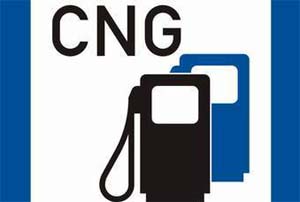 The Bangladesh Energy Regulatory Commission has again increased the price of compressed natural gas by about 50 per cent to Tk 25 a cubic metre from Tk 16.75 with effect from midnight past Thursday.
The Bangladesh Energy Regulatory Commission has again increased the price of compressed natural gas by about 50 per cent to Tk 25 a cubic metre from Tk 16.75 with effect from midnight past Thursday.
The commission announced the decision at a press conference on Thursday afternoon.
The chairman and two members of the commission met the prime minister and the state minister for energy in the past week to seek their opinion on the amount by which the CNG price would be increased, commission officials told New Age.
The commission order said that the government would now earn Tk 2,038 crore in revenue a year which is Tk 1,121 crore more than the figure of the past year.
Explaining the reason for increasing the price of the CNG, the commission chair, Yusuf Hossain, said that the commission had found that the rich were the beneficiary of CNG being a cheap fuel for vehicles.
Yusuf, however, avoided commenting on what effects it could have on the people riding hired three-wheelers and public buses.
Asked about the impact of the CNG price increase on public transports, Yusuf said that it was not for them to look into.
Stakeholders have, meanwhile, expressed their dissatisfaction and feared that the decision would increase transport fare and multiply the hardship of the common people.
The Association of Bus Companies president, Rafiqul Islam, said that they would propose that the communications ministry should increase bus fare to Tk 2.55 a kilometre from Tk 1.20.
‘We will be in an embarrassing situation because of the sudden increase in CNG price. The commission should have considered the stakeholders’ opinions
before taking such a decision although the increase is logical,’ said the communications minister, Syed Abul Hossain.
He said that he had already instituted a review committee to find out the best possible option to cope with higher CNG price.
Asked when the ministry would decide the fare of vehicles that run on CNG, , the communications minister told New Age that he would announce it as soon as possible after getting the recommendations from the review committee.
Zakir Hossain, the general secretary of the Bangladesh CNG Filling Station and Conversion Workshop Owners’ Association, said that the commission’s decision had not reflected the opinions of the stakeholders given at a public hearing in the Petrobangla’s proposal.
Shamsul Alam, the energy adviser to the Consumers’ Association of Bangladesh, also told New Age that the decision was based on ‘an unlawful decision’ of the ministry.
According to the Bangladesh Energy Regulatory Commission Act 2003, the commission is the only authority to set gas price in the down stream.
Shamsul Alam said that the government had first increased the feed gas price and then sent Petrobangla to the commission seeking an increase in the CNG price for end users to adjust with the previous increase.
He said that the commission had increased the CNG price for end users without reviewing the government’s decision.
The state-run oil, gas and mineral resources corporation Petrobangla sent the proposal to the commission on October 14, 2010 seeking its permission to increase CNG price to Tk 24.90 from Tk 16.75 a cubic metre for consumers.
In the proposal, Petrobangla advocated an increase in the CNG price for end users as the government had increased the price of CNG feed gas (supplied to CNG filling stations) to Tk 18 a cubic metre from Tk 9.97.
In the public hearing held at the commission office on March 8, stakeholders and experts protested at the government’s decision of almost doubling feed gas price as it was under the jurisdiction of the commission.
CNG-run vehicles now consume 105 to 110 million cubic feet of natural gas a day in the form of compressed natural gas dispensed from 584 CNG filling stations across the country.
With New Age input




















